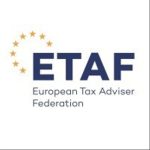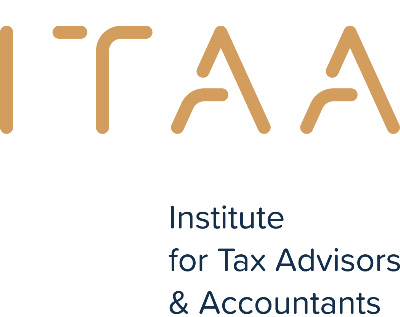EU REFLECTING ON NEW COUNTERMEASURES IN REACTION TO RUSSIA’S INVASION OF UKRAINE
The Russia’s invasion of Ukraine has completely reshuffled the agenda of these last days for EU heads of States and Finance ministers. On Wednesday 2 March, EU Finance Ministers held an emergency videocall to discuss the economic impact of the war and sanctions on Russia. The EU is actively working on measures to prevent circumvention of international sanctions imposed on the Russian banking sector, in particular the exclusion of seven banks from the SWIFT system. In this context, it is reportedly considering putting in place new provisions to avoid any attempt to evade sanctions imposed on Russia through crypto assets. The European Commission is also reportedly preparing a package of measures for this week that should help EU countries to mitigate the impact the war will have on the energy market, with possible state aid waivers and new loan programs.
THE IMPLEMENTING DIRECTIVE FOR PILLAR II BACK ON ECOFIN’S AGENDA
The Implementing Directive for Pillar II is back on the agenda of the next Ecofin Council on 15 March. The French presidency of the EU Council seems fully determined to try to reach an agreement as soon as possible despite ongoing differences among Member States on introducing the rules from 2023 and whether the Directive should be linked to Pillar I (reallocation of taxing rights) of the OECD tax deal. Many issues have reportedly come up during recent discussions, including Germany’s idea of keeping open the option to apply pillar 2 to smaller companies that don’t reach the €750 million turnover threshold. Another issue would be the request by Estonia for a voluntary application of the Income Inclusion Rule (IRR) since the Undertaxed Payments Rule (UPTR) will be applicable in any case. Malta would also reportedly have requested that the introduction of the minimum tax rate be delayed from 2023 to 2025.
HIGH-LEVEL GROUP MAKES RECOMMENDATIONS FOR FAIR AND EFFECTIVE TAXATION IN POST-COVID-19 TIME
The High-Level Group on post-COVID-19 economic and social challenges published on Tuesday 1 March its report on how Europe can recover sustainably and promote global stability. The document puts forward recommendations in five areas, including for “fair and effective taxation for the triple transition”. Among other things, it suggests to encourage and help national tax administrations to fight tax evasion and tax avoidance, notably by promoting the use of digital technology and the simplification of national tax rules. The report also recommends putting more emphasis on behavioural taxes, in particular environmental taxes, to maintain a desirable overall level of progressivity of the tax system and to adjust the composition of taxes towards less elastic tax sources, such as taxes on immovable property. Finally, the report supports a broadening of the corporate tax base and particularly the “Business in Europe: Framework for Income Taxation” (BEFIT) proposal.
ECON COMMITTEE STARTS ITS WORK ON THE RECAST OF THE ENERGY TAXATION DIRECTIVE
The Economic and Monetary Affairs (ECON) committee of the European Parliament started its work on the proposal for a recast of the Energy Taxation Directive (ETD), presented in July 2021, with the publication on Monday 28 February of the draft report from MEP Johan Van Overtveldt (ECR, Belgian). “The timing of the ETD proposal makes it even more challenging as rising energy prices and inflation are currently hitting Member States and broader geopolitical and military developments are not at all reassuring”, the rapporteur writes. In his report, Mr Van Overtveldt acknowledges that the proposal contains some good elements, such as the change from volume to energy-content as the basis for taxation and the broadening of the taxable base, but believes that it also has significant shortcomings. He particularly finds the absence of an assessment on the overall impact highly problematic and thus proposes to link the date of entering into force of the Directive to a comprehensive overall impact assessment. Moreover, he considers that Member States should remain free regarding the updating of the tax rates and therefore does not support the proposal for their automatic indexation. He also warns about the social costs of the recast of the Directive, in terms of a rise in energy poverty and unemployment.
UPDATED EU BLACK AND GREY LISTS OF TAX HAVENS
The EU Council decided, on Thursday 24 February, to maintain unchanged the European Union’s blacklist of jurisdictions that are uncooperative on tax matters. American Samoa, Fiji, Guam, Palau, Panama, Samoa, Trinidad and Tobago, US Virgin Islands and Vanuatu remain on the list. On the same day, the Council also approved the grey list of jurisdictions with tax risks but which have committed themselves to take corrective measures. This second list has been extended following the adoption in November 2021 of the Directive to increase country-by-country reporting and notably includes Russia.
MARLENE NEMBHARD-PARKER APPOINTED CO-CHAIR OF OECD/G20 INCLUSIVE FRAMEWORK ON BEPS
The OECD/G20 Inclusive Framework on Base Erosion and Profit Shifting (BEPS) elected on Tuesday 1 March Marlene Nembhard-Parker from the Tax Administration of Jamaica as its new co-chair. Ms. Nembhard-Parker will lead the group with Ms. Fabrizia Lapecorella from Italy who currently serves as Chair of the Inclusive Framework on BEPS. Ms. Nembhard-Parker is the first to hold the position, which has been established following a recent report on developing countries and the Inclusive Framework on BEPS calling for the governance of the Inclusive Framework to be more representative of developing countries.


